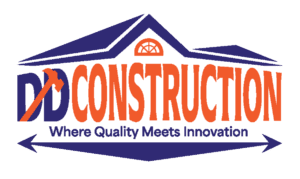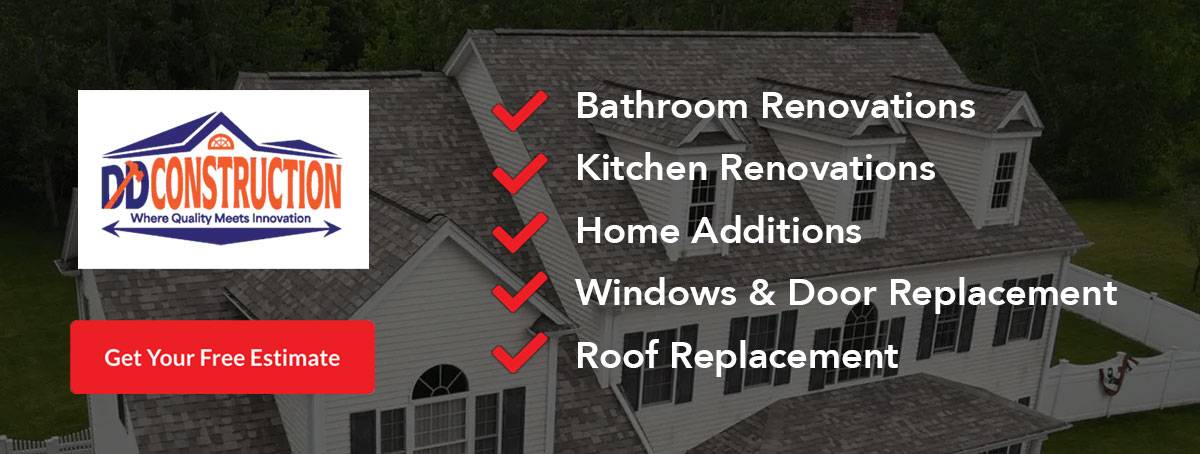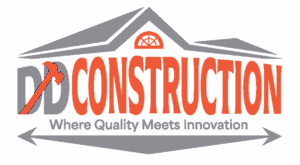Top 10 Questions to Ask a Roof Contractor in Massachusetts Before Hiring: Essential Guide for Homeowners and Property Owners
Welcome to this comprehensive guide for homeowners and property owners in Massachusetts seeking high-quality roofing services. When looking for a roof contractor like ddconstructionma, experience, adherence to local regulations, and transparency in pricing and warranties are key. This article outlines the top 10 questions you should ask, with detailed answers to help you make an informed decision. Through a focused look at contractor experience, licensing, roofing materials and services, pricing and financing, warranties, permit management, project timeline, customer references, insurance claims, and safety practices, you will understand what sets a high-quality roofing provider apart.
Massachusetts faces unique challenges—from heavy winter snowfall to high summer humidity—and maintains stringent building codes. Your chosen contractor must be familiar with local climate, codes, and energy-efficient options like reflective shingles, eco-friendly slate, and advanced insulation. Use this guide as a roadmap to protect your roof investment with a contractor who offers exceptional workmanship and customer service.
Each section below addresses a crucial question, breaking down important aspects with direct responses, evidence, and examples.
What Experience Does the Roof Contractor Have in Massachusetts?
A quality contractor in Massachusetts demonstrates extensive local experience by consistently working in the region. Their familiarity with coastal weather, heavy snowfall, and local regulations is essential.
How Many Years Has the Contractor Worked in Massachusetts Roofing?
Experienced contractors typically have over a decade of local service, with portfolios featuring residential, commercial, and historical restoration projects. Contractors active since before 2010 have likely navigated evolving building codes and diverse weather challenges. Their long track record is a strong indicator of reliability in both new installations and repairs on aging roofs. Client testimonials and case studies further highlight their ability to meet high standards, deadlines, and budgets.
What Types of Roofing Projects Has the Contractor Completed Locally?
A diverse local portfolio shows a contractor’s versatility. Examples include: – New installations in suburban homes, – Major replacements in historic downtown buildings, – Large-scale commercial roofing projects.
Such diversity means they can customize solutions to suit your property’s needs—whether handling slate roofs on historic buildings or installing modern synthetic shingles for improved energy efficiency. Reviewing before-and-after images or project testimonials offers a clear benchmark of their craftsmanship.
Does the Contractor Understand Massachusetts Building Codes and Weather Challenges?
A seasoned contractor understands local building codes, permit processes, and environmental challenges such as heavy snow loads and moisture control. By staying current with local code modifications and material innovations (for example, using copper flashing for both durability and appeal), they design roofs that mitigate weather-related issues and reduce long-term maintenance costs. Their ongoing professional education ensures compliance and homeowner safety.
Is the Roof Contractor Licensed, Insured, and Bonded in Massachusetts?
Verifying that a contractor is licensed, insured, and bonded protects you from liabilities and ensures adherence to state regulations.
What Licenses and Certifications Does the Contractor Hold?
A reputable Massachusetts contractor displays all necessary licenses and certifications. They must hold a valid Home Improvement Contractor (HIC) license, and many also obtain credentials from organizations like the National Roofing Contractors Association (NRCA). These certifications verify their training, exam performance, and commitment to safety. Always request copies of these documents and ask about continuing education to stay updated on industry changes.
Does the Contractor Carry Liability Insurance and Workers’ Compensation?
Liability insurance and workers’ compensation protect both you and the contractor during roofing work. This coverage ensures you are not financially liable for accidental property damage or injuries on site. Ensure the contractor provides current certificates with sufficient coverage for Massachusetts projects to safeguard against unforeseen events.
How Does Bonding Protect Me as a Homeowner or Property Owner?
Bonding offers an extra financial safeguard in case the contractor fails to complete the job or delivers subpar work. In Massachusetts, a higher bond amount is typical for large or high-value projects, reflecting the contractor’s commitment to quality. Verify the bond through appropriate channels to ensure it sufficiently covers the project scope.
What Roofing Materials and Services Does the Contractor Offer?
The best contractors offer a variety of materials and full roofing services to meet Massachusetts’ unique needs.
Which Roofing Materials Are Recommended for Massachusetts Homes?
Materials should perform well under harsh weather. Common recommendations include: – Asphalt shingles for cost-effectiveness and versatility, – Slate for durability, timeless appeal, and high resale value, – Metal roofs (using copper or aluminum) for longevity and energy reflection.
Contractors may also suggest eco-friendly options like synthetic materials or green roof systems that improve insulation and reduce environmental impact. Choosing materials that match your home’s style and local conditions is key.
Does the Contractor Provide Roof Installation, Repair, Maintenance, and Replacement?
A comprehensive contractor handles: – New installations with detailed assessments, – Repairs ranging from minor shingle fixes to major storm damage, – Routine maintenance including gutter cleaning and inspections, – Full roof replacement with upgraded materials.
An integrated service portfolio indicates the contractor’s ability to manage both planned and emergency projects, ensuring smooth execution even when unforeseen issues arise.
Are Eco-Friendly or Energy-Efficient Roofing Options Available?
With energy conservation rising in importance, many contractors now offer: – Reflective coatings to reduce heat absorption, – Solar roof tiles that can generate electricity, – Energy-efficient membranes and recycled shingle options.
These eco-friendly solutions not only comply with modern building codes but also offer long-term savings and lower utility bills. Contractors should provide guidance on any applicable government rebates or tax incentives.
How Does the Contractor Handle Estimates, Pricing, and Financing?
Clear, transparent pricing helps you budget and avoid surprises.
What Is Included in the Roofing Estimate or Quote?
A detailed, itemized roofing estimate should cover: – Materials, labor, site preparation, and disposal of old materials, – Necessary permits and estimated timeframes for each phase, – Contingency figures for unforeseen expenses.
This estimate should be accompanied by a written contract outlining scope, payment schedules, and workmanship guarantees. Reviewing multiple estimates helps ensure fairness and transparency.
Are There Financing or Payment Plan Options for Roofing Projects?
Since roofing projects can be a significant investment, many contractors offer financing options such as: – Low-interest loans or in-house payment plans, – Tiered payment schedules tied to project milestones (e.g., deposit upon signing, payment when materials are delivered, balance on completion).
Discuss these options early to find a plan that matches your budget needs.
How Does the Contractor Manage Unexpected Costs or Change Orders?
No project is without surprises. A reliable contractor will: – Communicate any extra work needed well in advance, – Provide revised estimates and timelines through a clear change order process, – Maintain transparent documentation to keep you informed and avoid budget overruns.
This clarity and proactive approach foster a trust-based relationship.
What Warranty and Guarantee Does the Roof Contractor Provide?
Warranties protect your investment and signal the contractor’s confidence.
What Types of Warranties Cover Materials and Workmanship?
A quality contractor offers: – Separate material warranties (often 20–30 years for asphalt, up to 50 years for slate/metal), – Workmanship warranties covering installation errors or defects (typically lasting 5–10 years).
Ensure the warranty is clearly defined in the contract, including what issues are covered and any required maintenance.
How Long Do These Warranties Last, and What Do They Cover?
Warranties cover problems such as water infiltration, shingle deterioration, or structural defects due to installation errors. Exact durations vary by material and the contractor’s workmanship guarantee. Ask for documentation detailing warranty conditions and any maintenance required to keep the warranty valid.
How Does the Contractor Handle Warranty Claims or Repairs?
A responsible contractor will have a systematic process for warranty claims: – Starting with a prompt on-site inspection, – Followed by corrective actions with clear timelines, – Including a “no questions asked” fast-track service if needed.
This responsiveness ensures minimal disruption and long-term roof security.
How Does the Contractor Manage Permits and Local Regulations in Massachusetts?
Navigating permits and local regulations is essential for a compliant and timely project.
Does the Contractor Obtain All Necessary Permits for Roofing Work?
A knowledgeable contractor handles all permit applications by: – Securing local municipal approvals, – Providing copies of permits for your records, – Incorporating estimated timelines and costs into the initial quote.
Such proactive management ensures the work complies with state and local building codes.
How Familiar Is the Contractor With Massachusetts Municipal Regulations?
Experienced contractors understand: – Local zoning laws, environmental requirements, and unique codes that vary between towns, – How these regulations influence material choices, installation methods, and timelines.
Their regional expertise minimizes delays and unexpected costs while ensuring compliance with updated building standards.
What Inspections Are Required During and After Roofing Projects?
Local regulations typically require: – Pre-construction, midway, and final inspections to verify quality and code adherence, – A contractor who schedules and manages these inspections ensures proper installation and safety.
This systematic oversight is key to passing inspections without delays or additional costs.
What Is the Contractor’s Process for Roof Inspection and Project Timeline?
A clear inspection process and timeline guarantee smooth project execution.
How Does the Contractor Conduct Roof Inspections Before Quoting?
Before quoting, a contractor will: – Perform a thorough on-site inspection covering all roofing components (shingles, underlayment, gutters, flashing), – Provide a written report with photos and recommended actions, – Use this information to tailor an accurate and comprehensive quote.
This process builds trust and minimizes unexpected expenses.
What Is the Typical Timeline From Estimate to Project Completion?
A typical roofing project in Massachusetts may take: – A few weeks up to two months, including permit acquisition, installation, and final inspection. – For example, permit and scheduling might take 1–2 weeks, installation 1–3 weeks, and final adjustments an additional week.
Reliable contractors include contingency plans for weather delays and provide regular progress updates.
How Will the Contractor Communicate Progress and Updates?
Effective communication involves: – Regular updates via email, phone, or in-person meetings, – A documented timeline with clear milestones, – A procedure for post-installation communication regarding final inspections and warranty registration.
These practices help coordinate the project and keep you informed throughout.
Can the Contractor Provide References and Reviews From Massachusetts Clients?
Verified references help confirm a contractor’s reliability and quality.
Where Can I Find Verified Customer Reviews and Testimonials?
A reputable contractor often displays: – Customer reviews and testimonials on their website and third-party platforms (e.g., Better Business Bureau), – Detailed accounts highlighting material quality, timely completion, and professional communication.
These reviews, along with before-and-after images of projects, provide social proof of their expertise.
Can the Contractor Provide Contact Information for Recent Clients?
Transparency means the contractor is willing to share: – Contact details of recent clients, – Case studies or documentation of past projects.
Speaking directly with former customers can confirm the contractor’s adherence to budget, timeline, and quality standards.
What Do Local Homeowners Say About the Contractor’s Reliability and Quality?
Local testimonials often mention: – Punctuality, professionalism, and clear communication, – The contractor’s ability to provide free quotes and detailed estimates without hidden charges, – Consistent quality in areas such as flashing, insulation, and overall finish.
These insights help set realistic expectations and confirm long-term durability and customer satisfaction.
How Does the Contractor Handle Insurance Claims and Emergency Roofing Services?
A contractor’s support during emergencies is critical for protecting your property.
Does the Contractor Assist With Insurance Claim Documentation?
A seasoned contractor will: – Help compile and submit detailed documentation (photos, written assessments, repair estimates) for insurance claims, – Guide you through the entire process to reduce administrative burdens.
This assistance is especially valuable after weather-related damage common in Massachusetts.
Are Emergency Roofing Repairs Available After Storms or Damage?
Emergency repairs are essential. A competent contractor: – Offers 24/7 emergency services to address urgent issues like leaks or structural instability, – Promises rapid response—often within 24 to 48 hours—to prevent further damage.
Their clear communication and rapid deployment minimize disruption after severe weather events.
What Is the Contractor’s Response Time for Urgent Roofing Issues?
Fast response times are vital. Top contractors clearly state: – Their operating hours and expected emergency repair timelines, – That they can handle multiple urgent cases simultaneously (e.g., promising a response within 48 hours on non-holiday weekends).
This commitment ensures your property remains protected during crises.
What Safety Measures and Cleanup Practices Does the Contractor Follow?
Proper safety and cleanup ensure the protection of workers and the preservation of your property.
What Safety Protocols Are in Place During Roofing Projects?
A professional contractor will: – Implement rigorous safety protocols including PPE (hard hats, harnesses, gloves, non-slip footwear), – Use secure scaffolding, safety nets, and fall arrest systems, – Conduct regular safety briefings and inspections on-site.
These measures reduce accidents and demonstrate a commitment to both worker and homeowner safety.
How Does the Contractor Manage Debris Removal and Site Cleanup?
Effective cleanup practices include: – Daily removal of construction debris, – A final walk-through to ensure no hazardous materials (nails, wood chips, etc.) are left behind, – Detailed cleanup plans outlined in the contract that may include recycling and eco-friendly disposal methods.
This attention to cleanup preserves the look and safety of your property.
Are There Guarantees for Protecting Property During Roofing Work?
A reputable contractor guarantees: – Protective measures such as tarps or coverings to safeguard landscaping, siding, and interior areas, – Minimal disruption and prevention of accidental damage from falling debris.
Such assurances highlight their overall professionalism and care for your property.
Frequently Asked Questions
Q: How can I verify if a roof contractor in Massachusetts is properly licensed and insured? A: Ask for copies of their current Home Improvement Contractor license, liability insurance, and workers’ compensation certificates. Verify these with the state licensing board or local authorities, and review client testimonials for additional assurance.
Q: What roofing materials are best suited for the Massachusetts climate? A: Materials that resist heavy snowfall, high winds, and humidity—such as asphalt shingles, slate, and metal roofing (e.g., copper or aluminum)—are ideal. Contractors can recommend the best option for your home’s design and local weather conditions.
Q: How long does a typical roofing project take from the initial inspection to final completion? A: The process varies based on complexity and weather, typically taking a few weeks to about two months. Detailed timelines are provided in the contractor’s estimate, with regular updates throughout the project.
Q: What should I do if unforeseen issues arise during the roofing project? A: The contractor should immediately communicate any unexpected issues and offer revised estimates via a clear change order process. Contingency plans in the contract protect both parties if additional expenses occur.
Q: How do warranty claims work after my roofing project is completed? A: Warranty claims require that issues be reported within the warranty period. The contractor will inspect the problem, determine if it’s due to material failure or workmanship, and then follow the documented claim process for prompt repairs.
Q: Can emergency roofing repairs be arranged quickly if storm damage occurs? A: Yes, many contractors offer 24/7 emergency repair services with rapid response times—usually within 24 to 48 hours—to address urgent repairs after severe weather events.
Q: Are there financing options available for roofing projects? A: Many contractors offer flexible financing options, including low-interest loans, installment plans, or in-house payment plans tied to project milestones. Discuss these options during the initial consultation to choose a plan that fits your budget.





